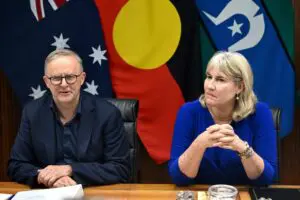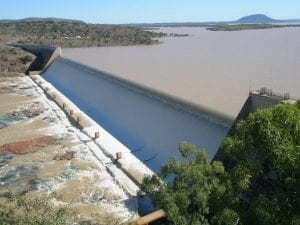Australia’s main political parties have been urged to set a 75 per cent emissions reduction target by 2030, and at the very least a 50 per cent, or risk falling behind international peers in the transition to clean energy.
The case for a stronger 2030 target has been outlined in a new report published by the Climate Council, which calls on a future Australian government to return to international climate negotiations, to be held next year in Egypt, with a much stronger target.
The Climate Council says Australia needed to set a 50 per cent target as the very minimum, but a 75 per cent emissions reduction target would be consistent with a global effort to keep climate warming to below 1.5 degrees, and to maintain Australia’s prosperity.
“So much is at stake: our whole way of life, our health, our livelihoods. Our window to avoid catastrophe is closing,” Climate Council CEO Amanda McKenzie said.
“Policy decisions made today are so important because our future depends on how quickly and decisively we respond to the climate challenge in the 2020s,” McKenzie said.
Climate change is set to be a significant feature of a federal election to be held in the first half of next year, but the targets announced by both the Morrison government and the Labor opposition fall below international peers, the urgings of business groups, and the proposals of climate independents and The Greens.
The Morrison Government has remained steadfast to reducing emissions by just 26 to 28 per cent by 2030 from 2005 levels, first adopted by the Abbott government in 2015. Labor is taking a 43 per cent reduction target for 2030 to the next federal election, lower than the 45 per cent target it took to the 2019 election.
The Climate Council says neither target is consistent with scientific advice fall, and the world would be on track for between 3 and 4 degrees of global warming if all countries followed Australia’s current targets.
Not only did it put Australia out of step with established science on the impacts of climate change, which includes forecasts of increasingly severe consequences for Australia, but it also meant Australia was missing out on the positive economic opportunities being created through the energy transition.
“Australia is an immensely lucky country, with so many natural advantages in the global race to net zero. Not only do we have world-class renewable resources, we also have abundant critical minerals, technical expertise and geographic proximity to the strong growth markets of Asia,” the Climate Council’s report says.
“Embracing a strong 2030 target would be a win-win-win for Australia. It would lower our emissions and save us all money in cheaper fuel and power costs.
“It would boost the productivity of our economy, particularly in our regions, and make us all healthier. It would help to restore our international standing, and make the world a much safer place.”
Among Australia’s international peers, the US has adopted a 50 to 52 per cent target, the UK a 68 per cent cut, and the European Union’s 55 per cent cut.
McKenzie said that Australia would continue to face pressure from international peers to adopt stronger medium-term targets.
“Australia signed the Glasgow Pact at COP26 last month, which demands increasing ambition on emissions reductions this decade. All of our allies are taking this seriously,” McKenzie said.
“We have to do better and at least match them by taking a 50 per cent emissions reduction to COP27 next year and improving on it year on year during the 20s.
“We know that we must do everything possible to limit warming to 1.5 degrees, and that this requires emissions to plummet this decade. We know that every fraction of a degree of avoided warming matters, and will be measured in lives, species and ecosystems saved.”
Good, independent journalism takes time and money. But small independent media sites like RenewEconomy have been excluded from the millions of dollars being handed out to big media companies from the social media giants. To enable us to continue to hold governments and big business to account on climate and the renewable energy transition, and to help us highlight the extraordinary developments in technology and projects that are taking place, you can make a voluntary donation here to help ensure we can continue to offer the service free of charge and to as wide an audience as possible. Thank you for your support.









